Citric acid cleaning hacks are about to become your new best friend! Seriously, forget those harsh chemicals and expensive cleaners. I’m going to show you how this natural powerhouse can tackle grime, banish hard water stains, and leave your home sparkling, all while being gentle on the environment and your wallet.
Citric acid, derived from citrus fruits like lemons and limes, has been used for centuries for its cleaning and preserving properties. Think back to your grandmother’s cleaning rituals – chances are, she was using lemon juice to brighten her whites or remove stubborn stains. This isn’t just some trendy new fad; it’s a time-tested solution with a rich history.
But why should you embrace citric acid cleaning hacks? In today’s world, we’re all looking for ways to simplify our lives, reduce our exposure to harmful chemicals, and save a little money. Store-bought cleaners can be expensive and often contain ingredients that are harsh on our skin, our homes, and the planet. Citric acid offers a safe, effective, and affordable alternative. Plus, the fresh, citrusy scent is a welcome bonus!
Ready to unlock the cleaning secrets of citric acid? Let’s dive into some amazing DIY tricks that will transform your cleaning routine and leave your home feeling fresh and revitalized. Get ready to be amazed by the power of this natural wonder!
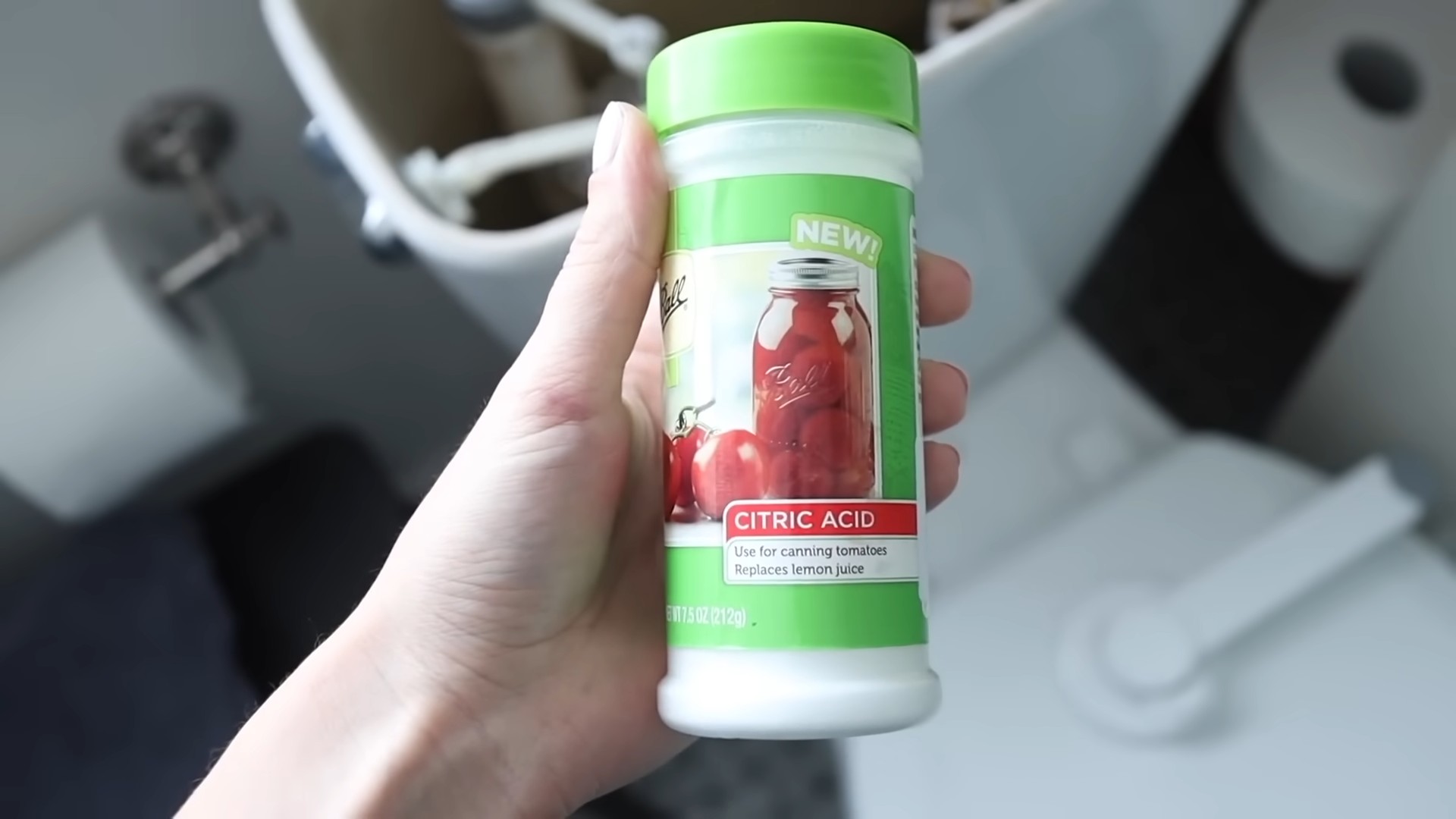
Citric Acid Cleaning Hacks: Your Ultimate DIY Guide
Hey there, fellow cleaning enthusiasts! I’m so excited to share my favorite citric acid cleaning hacks with you. Citric acid is a total game-changer – it’s natural, effective, and super versatile. Forget those harsh chemicals; let’s get cleaning with the power of lemons (well, technically, citric acid)!
What is Citric Acid and Why Should You Use It?
Citric acid is a weak organic acid found naturally in citrus fruits like lemons and limes. It’s a fantastic cleaning agent because it’s:
* Non-toxic: Much safer than many commercial cleaners.
* Biodegradable: Good for the environment!
* Effective: Cuts through grease, grime, and hard water stains like a champ.
* Deodorizing: Leaves a fresh, clean scent.
* Affordable: A big bag of citric acid powder goes a long way.
Getting Started: Essential Supplies
Before we dive into the hacks, let’s gather our supplies. You’ll need:
* Citric acid powder (easily found online or in some grocery stores)
* Spray bottles
* Microfiber cloths
* Gloves (optional, but recommended for sensitive skin)
* Measuring spoons or cups
* Water (distilled water is best, but tap water works too)
* Containers for soaking items
* Optional: Essential oils for added fragrance (lemon, lavender, tea tree are great choices)
Hack 1: Descaling Your Kettle and Coffee Maker
Hard water buildup can wreak havoc on your kettle and coffee maker, making them less efficient and affecting the taste of your beverages. Citric acid to the rescue!
Step-by-Step Instructions:
1. Prepare the Solution: For a kettle, mix 1-2 tablespoons of citric acid powder with enough water to fill the kettle. For a coffee maker, use 2-3 tablespoons of citric acid per full carafe of water.
2. Kettle Descaling: Pour the citric acid solution into your kettle. Bring the solution to a boil and let it sit for 30 minutes to an hour, depending on the severity of the scale.
3. Coffee Maker Descaling: Pour the citric acid solution into the water reservoir of your coffee maker. Run a full brewing cycle.
4. Rinse Thoroughly: After the soaking/brewing, discard the solution. Fill the kettle or coffee maker with fresh water and boil/brew again to rinse away any remaining citric acid. Repeat this rinsing process 2-3 times to ensure all traces of citric acid are gone.
5. Inspect and Repeat (if needed): Check for any remaining scale. If necessary, repeat the process with a stronger citric acid solution or let it soak for a longer period.
Hack 2: Cleaning Your Shower and Bathroom
Say goodbye to soap scum and hard water stains in your shower and bathroom! Citric acid is a fantastic natural alternative to harsh chemical cleaners.
Step-by-Step Instructions:
1. Prepare the Spray: Mix 2 tablespoons of citric acid powder with 16 ounces of warm water in a spray bottle. Shake well to dissolve the citric acid.
2. Spray and Soak: Spray the citric acid solution liberally onto shower walls, tiles, faucets, and showerheads. Let it sit for 15-30 minutes to allow the citric acid to break down the soap scum and hard water stains. For stubborn stains, you can let it sit for up to an hour.
3. Scrub (if needed): For heavily soiled areas, use a scrub brush or sponge to gently scrub away the loosened grime. A non-scratch scrub pad is ideal for delicate surfaces.
4. Rinse Thoroughly: Rinse all surfaces thoroughly with clean water. Make sure to remove all traces of the citric acid solution.
5. Dry and Shine: Wipe down the surfaces with a clean, dry microfiber cloth to prevent water spots and leave a sparkling shine.
Hack 3: Removing Hard Water Stains from Faucets and Showerheads
Hard water stains can make your faucets and showerheads look dull and grimy. Citric acid can dissolve those mineral deposits and restore their shine.
Step-by-Step Instructions:
1. Prepare the Solution: Mix 2-3 tablespoons of citric acid powder with 1 cup of hot water in a bowl or container.
2. Soak or Apply:
* For Faucets: Soak a cloth or sponge in the citric acid solution and wrap it around the faucet. Let it sit for 30 minutes to an hour.
* For Showerheads: If possible, remove the showerhead and soak it directly in the citric acid solution for a few hours or overnight. If you can’t remove the showerhead, fill a plastic bag with the solution and secure it around the showerhead with a rubber band, ensuring the showerhead is fully submerged.
3. Scrub (if needed): After soaking, use a scrub brush or sponge to gently scrub away any remaining hard water stains.
4. Rinse Thoroughly: Rinse the faucets and showerheads thoroughly with clean water to remove all traces of the citric acid solution.
5. Dry and Shine: Wipe down the surfaces with a clean, dry microfiber cloth to prevent water spots and leave a sparkling shine.
Hack 4: Cleaning Your Dishwasher
Your dishwasher works hard, but it can accumulate food particles, grease, and hard water buildup over time. Citric acid can help keep it clean and running efficiently.
Step-by-Step Instructions:
1. Empty the Dishwasher: Make sure your dishwasher is completely empty.
2. Add Citric Acid: Pour 2-3 tablespoons of citric acid powder into the detergent dispenser. You can also sprinkle some citric acid on the bottom of the dishwasher.
3. Run a Hot Cycle: Run a normal or heavy-duty cycle with hot water.
4. Optional: Vinegar Boost: For extra cleaning power, you can also add a cup of white vinegar to the bottom of the dishwasher before running the cycle.
5. Repeat (if needed): If your dishwasher is particularly dirty, you may need to repeat the process.
Hack 5: Cleaning Burnt Food from Pots and Pans
Burnt food can be a nightmare to remove from pots and pans. Citric acid can help loosen the burnt residue, making it easier to clean.
Step-by-Step Instructions:
1. Fill the Pot/Pan: Fill the pot or pan with enough water to cover the burnt food.
2. Add Citric Acid: Add 1-2 tablespoons of citric acid powder to the water.
3. Boil the Solution: Bring the water to a boil and let it simmer for 15-30 minutes. The citric acid will help loosen the burnt food.
4. Let it Cool: Allow the water to cool slightly before attempting to clean the pot or pan.
5. Scrub and Clean: Use a scrub brush or sponge to scrub away the loosened burnt food. You may need to use a bit of elbow grease, but the citric acid should make the process much easier.
6. Wash as Usual: Wash the pot or pan with soap and water as usual.
Hack 6: Rust Removal
Citric acid is a great rust remover for smaller items.
Step-by-Step Instructions:
1. Prepare the Solution: Mix a strong solution of citric acid and water. I usually go for a 1:6 ratio (1 part citric acid to 6 parts water).
2. Soak the Item: Submerge the rusty item in the solution. The soaking time depends on the severity of the rust. Light rust might only need a few hours, while heavier rust could require overnight soaking.
3. Check Progress: Periodically check the item to see if the rust is dissolving.
4. Scrub (if needed): After soaking, use a brush (an old toothbrush works well) to scrub away any remaining rust.
5. Rinse and Dry: Rinse the item thoroughly with water and dry it completely to prevent new rust from forming.
Hack 7: Laundry Booster and Brightener
Citric acid can act as a natural laundry booster and brightener, helping to remove stains and keep your clothes looking their best.
Step-by-Step Instructions:
1. Add to the Wash: Add 1-2 tablespoons of citric acid powder to your washing machine along with your regular detergent.
2. Wash as Usual: Wash your clothes as usual, following the care instructions on the garment labels.
3. For Stain Removal: For stubborn stains, you can create a paste of citric acid and water and apply it directly to the stain before washing. Let it sit for 30 minutes to an hour before washing.
Important Safety Tips
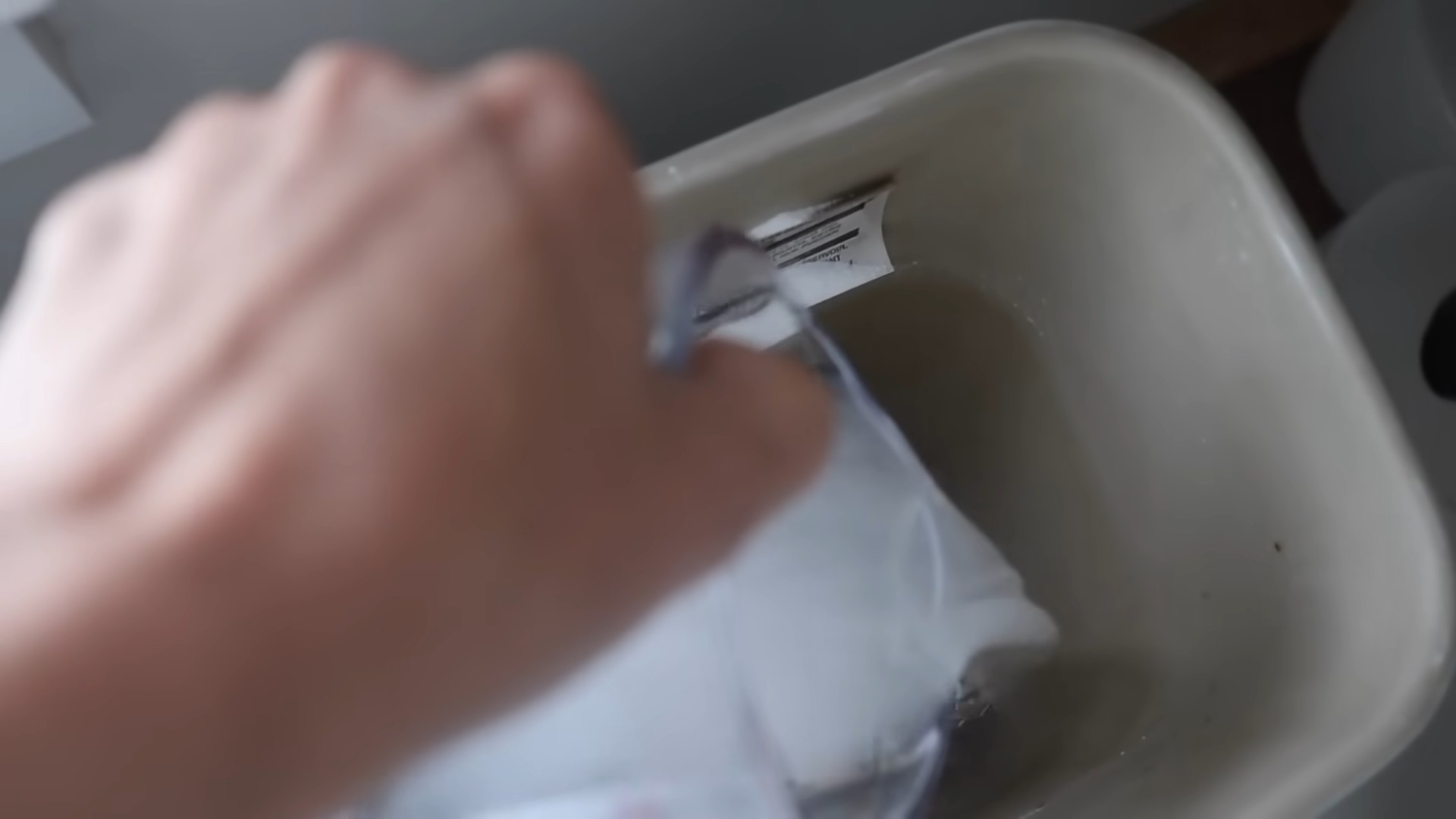
Conclusion
So, there you have it! Citric acid cleaning hacks are not just a trend; they’re a game-changer for anyone looking to simplify their cleaning routine and embrace a more eco-friendly approach. We’ve explored how this readily available, naturally derived powder can tackle everything from stubborn hard water stains to grimy coffee makers, all while being gentler on the environment and your wallet than many commercial cleaners.
Why is this DIY trick a must-try? Because it’s effective, versatile, and safe. You’re not just cleaning; you’re investing in a healthier home environment by reducing your exposure to harsh chemicals. Plus, the satisfaction of creating your own powerful cleaning solutions is surprisingly rewarding.
But the beauty of citric acid cleaning doesn’t stop there. Feel free to experiment with variations to suit your specific needs and preferences. For instance, add a few drops of your favorite essential oil, like lavender or lemon, to your citric acid solution for an extra boost of freshness. For tougher stains, create a paste by mixing citric acid with a small amount of water and apply it directly to the affected area. Let it sit for a bit longer before scrubbing and rinsing. You can also adjust the concentration of citric acid depending on the task at hand – a weaker solution for delicate surfaces and a stronger one for heavy-duty cleaning.
Consider using citric acid to revitalize your dishwasher. Simply add a tablespoon or two to the detergent compartment and run a normal cycle. You’ll be amazed at how sparkling clean your dishes and dishwasher become. Similarly, citric acid can be used to descale your kettle or coffee maker, removing mineral buildup and improving their performance.
The possibilities are truly endless!
We’ve armed you with the knowledge and inspiration to transform your cleaning routine with the power of citric acid. Now, it’s your turn to put these hacks to the test. We are confident that you’ll be impressed with the results.
Don’t just take our word for it. Try these citric acid cleaning hacks for yourself and discover the difference they can make in your home. We encourage you to share your experiences, tips, and variations in the comments below. Let’s build a community of eco-conscious cleaners who are passionate about creating a healthier and more sustainable living space.
What are you waiting for? Grab some citric acid and get ready to experience the cleaning power of nature! We can’t wait to hear about your success stories. Happy cleaning!
Frequently Asked Questions (FAQ)
What exactly is citric acid, and is it safe to use?
Citric acid is a naturally occurring organic acid found in citrus fruits like lemons, limes, and oranges. It’s a weak acid, making it a safe and effective cleaning agent. It’s biodegradable and non-toxic, making it a much better alternative to harsh chemical cleaners. However, like any cleaning product, it’s essential to use it responsibly. Avoid contact with eyes and prolonged skin contact. If irritation occurs, rinse thoroughly with water. Keep it out of reach of children and pets. While generally safe, it’s always a good idea to test a small, inconspicuous area before applying it to larger surfaces, especially delicate materials.
Can I use lemon juice instead of citric acid powder?
While lemon juice contains citric acid, it’s not as concentrated as citric acid powder. Therefore, you’ll need to use a significantly larger amount of lemon juice to achieve the same cleaning power. Also, lemon juice contains sugars that can leave a sticky residue, especially if not rinsed thoroughly. Citric acid powder is pure citric acid, so it doesn’t have this issue. For the best and most consistent results, citric acid powder is the preferred choice. However, in a pinch, lemon juice can be used as a substitute, but be prepared to use more and rinse more carefully.
What surfaces should I avoid cleaning with citric acid?
While citric acid is generally safe for most surfaces, there are a few exceptions. Avoid using it on natural stone surfaces like marble, granite, and limestone, as it can etch or damage them. Also, avoid using it on aluminum, as it can cause discoloration. Always test a small, inconspicuous area first to ensure it doesn’t damage the surface. When in doubt, consult the manufacturer’s instructions for the surface you’re cleaning.
How do I make a basic citric acid cleaning solution?
Making a basic citric acid cleaning solution is incredibly simple. Just mix 1-2 tablespoons of citric acid powder with 1 cup of warm water in a spray bottle. Shake well to dissolve the powder completely. You can adjust the concentration depending on the task at hand. For light cleaning, use a weaker solution (1 tablespoon per cup of water). For tougher stains, use a stronger solution (2 tablespoons per cup of water). Always label your spray bottle clearly to avoid confusion.
How do I store my citric acid cleaning solution?
Store your citric acid
So, there you have it! Citric acid cleaning hacks are not just a trend; they’re a game-changer for anyone looking to simplify their cleaning routine and embrace a more eco-friendly approach. We’ve explored how this readily available, naturally derived powder can tackle everything from stubborn hard water stains to grimy coffee makers, all while being gentler on the environment and your wallet than many commercial cleaners.
Why is this DIY trick a must-try? Because it’s effective, versatile, and safe. You’re not just cleaning; you’re investing in a healthier home environment by reducing your exposure to harsh chemicals. Plus, the satisfaction of creating your own powerful cleaning solutions is surprisingly rewarding.
But the beauty of citric acid cleaning doesn’t stop there. Feel free to experiment with variations to suit your specific needs and preferences. For instance, add a few drops of your favorite essential oil, like lavender or lemon, to your citric acid solution for an extra boost of freshness. For tougher stains, create a paste by mixing citric acid with a small amount of water and apply it directly to the affected area. Let it sit for a bit longer before scrubbing and rinsing. You can also adjust the concentration of citric acid depending on the task at hand – a weaker solution for delicate surfaces and a stronger one for heavy-duty cleaning.
Consider using citric acid to revitalize your dishwasher. Simply add a tablespoon or two to the detergent compartment and run a normal cycle. You’ll be amazed at how sparkling clean your dishes and dishwasher become. Similarly, citric acid can be used to descale your kettle or coffee maker, removing mineral buildup and improving their performance.
The possibilities are truly endless!
We’ve armed you with the knowledge and inspiration to transform your cleaning routine with the power of citric acid. Now, it’s your turn to put these hacks to the test. We are confident that you’ll be impressed with the results.
Don’t just take our word for it. Try these citric acid cleaning hacks for yourself and discover the difference they can make in your home. We encourage you to share your experiences, tips, and variations in the comments below. Let’s build a community of eco-conscious cleaners who are passionate about creating a healthier and more sustainable living space.
What are you waiting for? Grab some citric acid and get ready to experience the cleaning power of nature! We can’t wait to hear about your success stories. Happy cleaning!
Frequently Asked Questions (FAQ)
What exactly is citric acid, and is it safe to use?
Citric acid is a naturally occurring organic acid found in citrus fruits like lemons, limes, and oranges. It’s a weak acid, making it a safe and effective cleaning agent. It’s biodegradable and non-toxic, making it a much better alternative to harsh chemical cleaners. However, like any cleaning product, it’s essential to use it responsibly. Avoid contact with eyes and prolonged skin contact. If irritation occurs, rinse thoroughly with water. Keep it out of reach of children and pets. While generally safe, it’s always a good idea to test a small, inconspicuous area before applying it to larger surfaces, especially delicate materials.
Can I use lemon juice instead of citric acid powder?
While lemon juice contains citric acid, it’s not as concentrated as citric acid powder. Therefore, you’ll need to use a significantly larger amount of lemon juice to achieve the same cleaning power. Also, lemon juice contains sugars that can leave a sticky residue, especially if not rinsed thoroughly. Citric acid powder is pure citric acid, so it doesn’t have this issue. For the best and most consistent results, citric acid powder is the preferred choice. However, in a pinch, lemon juice can be used as a substitute, but be prepared to use more and rinse more carefully.
What surfaces should I avoid cleaning with citric acid?
While citric acid is generally safe for most surfaces, there are a few exceptions. Avoid using it on natural stone surfaces like marble, granite, and limestone, as it can etch or damage them. Also, avoid using it on aluminum, as it can cause discoloration. Always test a small, inconspicuous area first to ensure it doesn’t damage the surface. When in doubt, consult the manufacturer’s instructions for the surface you’re cleaning.
How do I make a basic citric acid cleaning solution?
Making a basic citric acid cleaning solution is incredibly simple. Just mix 1-2 tablespoons of citric acid powder with 1 cup of warm water in a spray bottle. Shake well to dissolve the powder completely. You can adjust the concentration depending on the task at hand. For light cleaning, use a weaker solution (1 tablespoon per cup of water). For tougher stains, use a stronger solution (2 tablespoons per cup of water). Always label your spray bottle clearly to avoid confusion.
How do I store my citric acid cleaning solution?
Store your citric acid cleaning solution in a clearly labeled spray bottle in a cool, dark place. It’s best to use it within a few weeks, as the solution may lose its effectiveness over time. Keep it out of reach of children and pets. Avoid storing it in direct sunlight or near heat sources.
Can I use citric acid to clean my toilet?
Yes, citric acid is an excellent toilet bowl cleaner. Simply sprinkle about 1/4 cup of citric acid powder directly into the toilet bowl. Let it sit for at least 30 minutes, or even overnight for stubborn stains. Then, scrub with a toilet brush and flush. The citric acid will help to remove hard water stains, mineral deposits, and other grime, leaving your toilet bowl sparkling clean.
Is citric acid safe for septic systems?
Yes, citric acid is generally considered safe for septic systems. It’s a natural substance that breaks down quickly and doesn’t contain harsh chemicals that can harm the beneficial bacteria in your septic tank. However, as with any cleaning product, it’s important to use it in moderation. Avoid using excessive amounts of citric acid, as this could potentially disrupt the balance of your septic system.
Where can I buy citric acid powder?
Citric acid powder is readily available at most grocery stores, health food stores, and online retailers. Look for it in the baking aisle or the cleaning supplies section. You can also find it at stores that sell canning supplies. It’s typically sold in bags or jars. Make sure to choose food-grade citric acid for cleaning purposes.
Can I use citric acid to remove rust?
Yes, citric acid is effective at removing rust from various surfaces. Create a paste by mixing citric acid powder with a small amount of water. Apply the paste to the rusted area and let it sit for several hours or overnight. Then, scrub with a brush or sponge and rinse thoroughly. For heavily rusted items, you may need to repeat the process or soak the item in a citric acid solution for a longer period.
How can I use citric acid to descale my kettle or coffee maker?
To descale your kettle or coffee maker with citric acid, fill the appliance with water and add 1-2 tablespoons of citric acid powder. Bring the water to a boil (for kettles) or run a brewing cycle (for coffee makers). Let the solution sit for 30 minutes to an hour. Then, empty the appliance and rinse it thoroughly with clean water. Repeat the rinsing process several times to ensure all traces of citric acid are removed. This will help to remove mineral buildup and improve the performance of your appliance.

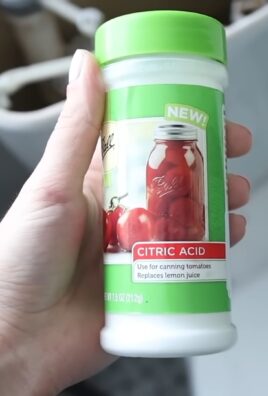
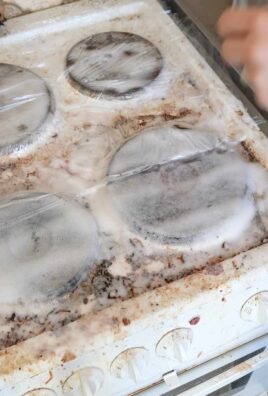
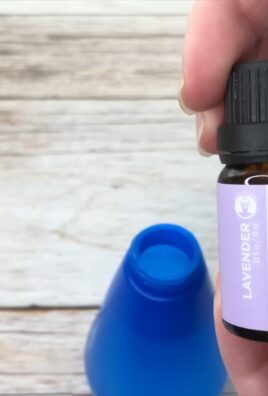
Leave a Comment